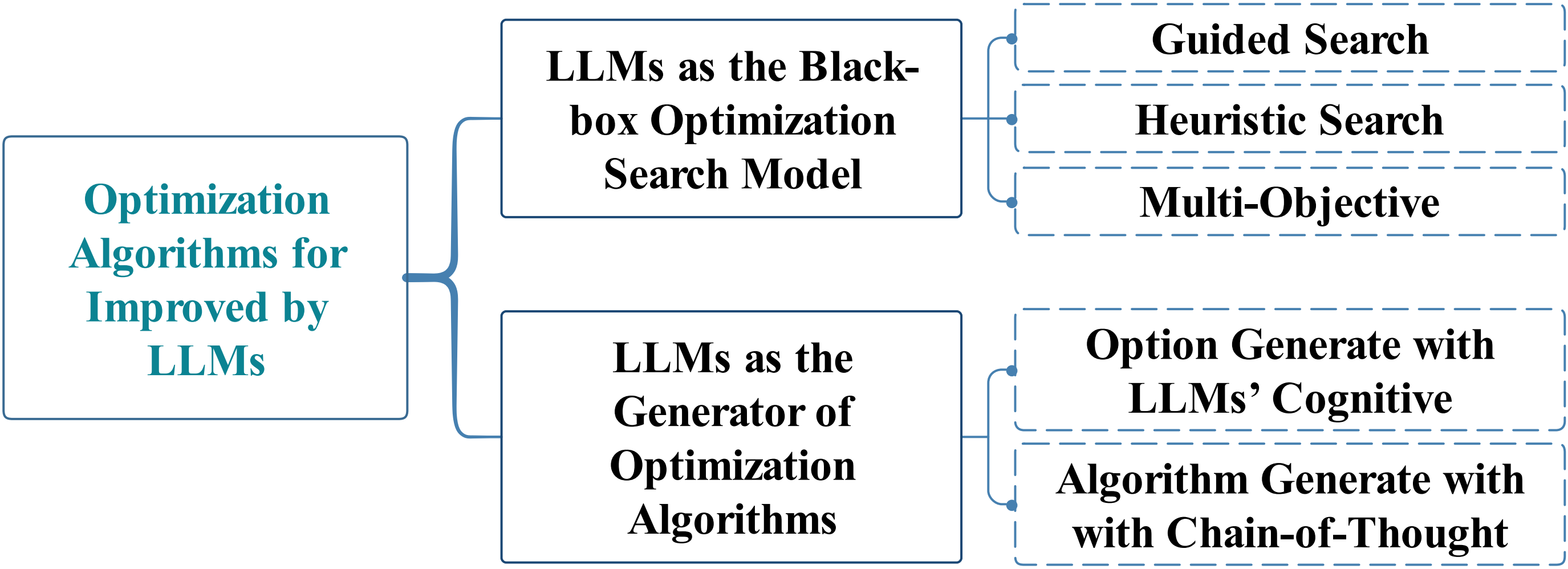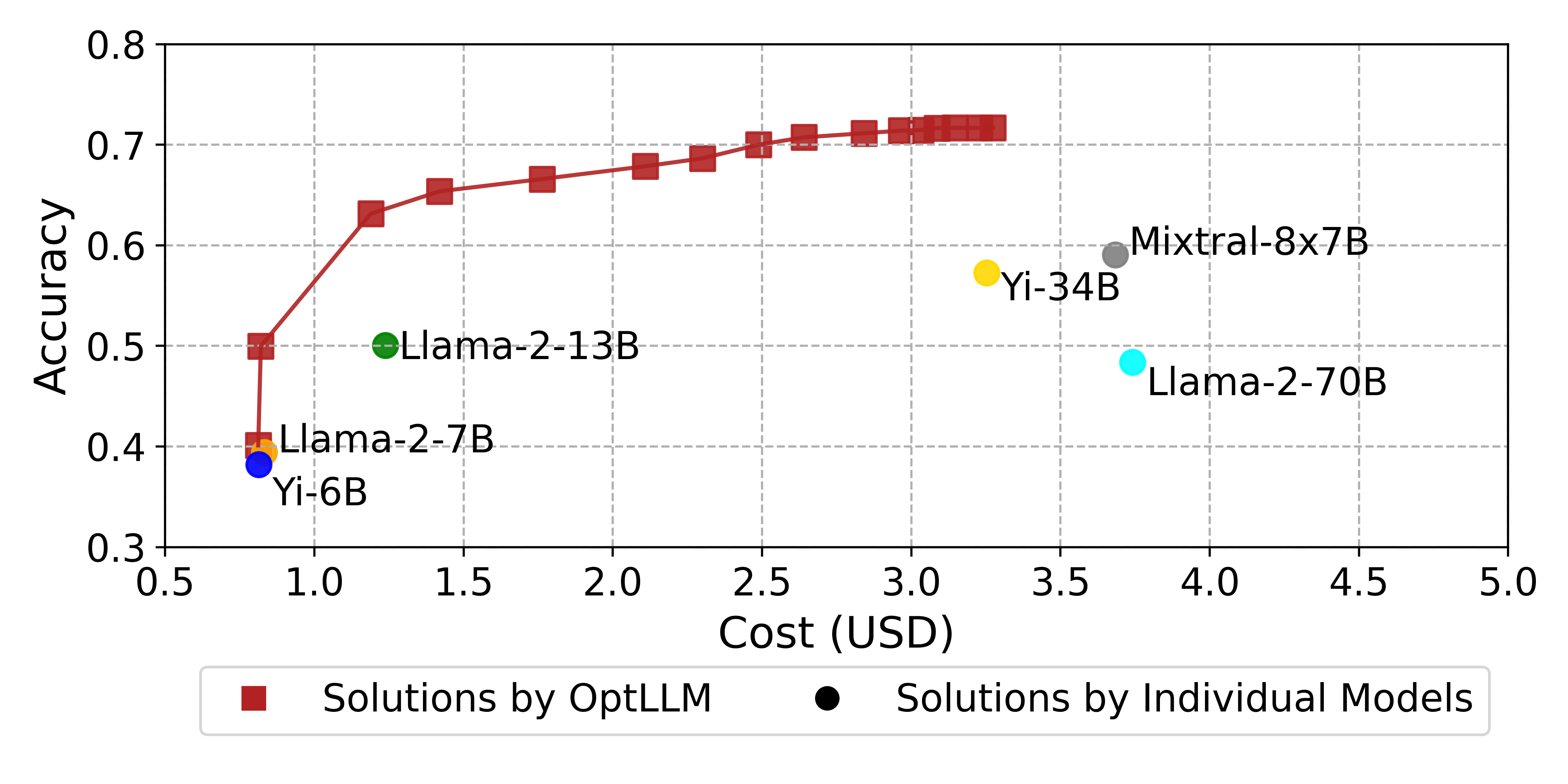Towards Optimizing with Large Language Models
2310.05204

0
0

Abstract
In this work, we conduct an assessment of the optimization capabilities of LLMs across various tasks and data sizes. Each of these tasks corresponds to unique optimization domains, and LLMs are required to execute these tasks with interactive prompting. That is, in each optimization step, the LLM generates new solutions from the past generated solutions with their values, and then the new solutions are evaluated and considered in the next optimization step. Additionally, we introduce three distinct metrics for a comprehensive assessment of task performance from various perspectives. These metrics offer the advantage of being applicable for evaluating LLM performance across a broad spectrum of optimization tasks and are less sensitive to variations in test samples. By applying these metrics, we observe that LLMs exhibit strong optimization capabilities when dealing with small-sized samples. However, their performance is significantly influenced by factors like data size and values, underscoring the importance of further research in the domain of optimization tasks for LLMs.
Create account to get full access
Overview
- This paper explores the potential of using large language models (LLMs) for optimization tasks.
- The authors investigate how LLMs can be leveraged to improve the efficiency and performance of black-box optimization techniques.
- Key focus areas include leveraging LLMs for optimization, optimal assignment of optimization queries to LLMs, and evaluating the capabilities of LLMs for optimization.
Plain English Explanation
The paper explores how large language models (LLMs) - the powerful AI systems that can generate human-like text - can be used to improve the efficiency and performance of optimization tasks. Optimization is the process of finding the best solution to a problem, like finding the fastest route between two locations or the most cost-effective way to manufacture a product.
Traditionally, optimization problems have been solved using specialized algorithms and techniques. However, the authors of this paper hypothesize that LLMs could be leveraged to enhance these optimization methods. For example, an LLM could be used to quickly analyze the characteristics of an optimization problem and suggest promising search directions, or to intelligently allocate computational resources to different parts of the optimization process.
The paper investigates several key areas where LLMs could be applied to optimization, such as using LLMs to guide the optimization process, determining the optimal way to assign optimization queries to different LLMs, and evaluating the capabilities of LLMs for optimization tasks. The authors conduct experiments and analyses to better understand the potential benefits and limitations of using LLMs in this context.
Technical Explanation
The paper begins by reviewing the relevant prior work in the areas of black-box optimization and the use of LLMs for various tasks. The authors then present their methodology for incorporating LLMs into the optimization process.
One key aspect of their approach is the use of LLMs to guide the optimization search. The authors hypothesize that LLMs can be used to analyze the characteristics of an optimization problem and provide insights that can help steer the search towards promising regions of the solution space. They experiment with different ways of integrating LLM-based guidance into standard optimization algorithms.
Another focus of the paper is the challenge of efficiently allocating optimization queries to different LLMs. The authors propose an optimal assignment strategy that aims to maximize the utilization of the available LLM resources while minimizing the overall optimization time.
Additionally, the authors address the need for specialized evaluation metrics and benchmarks to assess the performance of LLMs on optimization tasks. They develop new evaluation frameworks and conduct experiments to better understand the strengths and limitations of LLMs in this context.
Critical Analysis
The paper presents a compelling vision for leveraging LLMs to improve the efficiency and performance of optimization tasks. The authors demonstrate promising initial results and identify several avenues for further exploration.
However, the paper also acknowledges several limitations and challenges that need to be addressed. For example, the authors note that the performance of LLM-based optimization approaches can be sensitive to the quality and bias of the training data used to fine-tune the LLMs. Additionally, the computational overhead associated with integrating LLMs into optimization workflows may limit the scalability of the proposed methods in certain scenarios.
Further research is needed to better understand the tradeoffs and boundary conditions of using LLMs for optimization, as well as to develop more robust and efficient integration strategies. The authors also highlight the need for continued advancements in LLM evaluation metrics and benchmarks to support the ongoing development and deployment of these techniques.
Conclusion
This paper presents a promising direction for the application of large language models to optimization tasks. By leveraging the language understanding and generation capabilities of LLMs, the authors demonstrate the potential to enhance the efficiency and performance of black-box optimization techniques. The proposed approaches, along with the identified challenges and areas for future work, provide a valuable foundation for further research and development in this emerging field.
This summary was produced with help from an AI and may contain inaccuracies - check out the links to read the original source documents!
Related Papers
🛠️
Exploring the True Potential: Evaluating the Black-box Optimization Capability of Large Language Models
Beichen Huang, Xingyu Wu, Yu Zhou, Jibin Wu, Liang Feng, Ran Cheng, Kay Chen Tan

0
0
Large language models (LLMs) have gained widespread popularity and demonstrated exceptional performance not only in natural language processing (NLP) tasks but also in non-linguistic domains. Their potential as artificial general intelligence extends beyond NLP, showcasing promising capabilities in diverse optimization scenarios. Despite this rising trend, whether the integration of LLMs into these black-box optimization problems is genuinely beneficial remains unexplored. This paper endeavors to tackle this issue by offering deeper insights into the potential of LLMs in optimization tasks through a comprehensive investigation. Our approach involves a comprehensive evaluation, covering both discrete and continuous optimization problems, aiming to assess the efficacy and distinctive characteristics that LLMs bring to the realm of optimization. Our findings reveal both the limitations and advantages of LLMs in optimization. On one hand, despite consuming the significant power required to run the model, LLMs exhibit subpar performance and lack desirable properties in pure numerical tasks, primarily due to a mismatch between the problem domain and their processing capabilities. On the other hand, although LLMs may not be ideal for traditional numerical optimization, their potential in broader optimization contexts remains promising. LLMs exhibit the ability to solve problems in non-numerical domains and can leverage heuristics from the prompt to enhance their performance. To the best of our knowledge, this work presents the first systematic evaluation of LLMs for numerical optimization, offering a progressive, wide-coverage, and behavioral analysis. Our findings pave the way for a deeper understanding of LLMs' role in optimization and guide future application in diverse scenarios for LLMs.
4/10/2024

When Large Language Model Meets Optimization
Sen Huang, Kaixiang Yang, Sheng Qi, Rui Wang

0
0
Optimization algorithms and large language models (LLMs) enhance decision-making in dynamic environments by integrating artificial intelligence with traditional techniques. LLMs, with extensive domain knowledge, facilitate intelligent modeling and strategic decision-making in optimization, while optimization algorithms refine LLM architectures and output quality. This synergy offers novel approaches for advancing general AI, addressing both the computational challenges of complex problems and the application of LLMs in practical scenarios. This review outlines the progress and potential of combining LLMs with optimization algorithms, providing insights for future research directions.
5/17/2024

OptLLM: Optimal Assignment of Queries to Large Language Models
Yueyue Liu, Hongyu Zhang, Yuantian Miao, Van-Hoang Le, Zhiqiang Li

0
0
Large Language Models (LLMs) have garnered considerable attention owing to their remarkable capabilities, leading to an increasing number of companies offering LLMs as services. Different LLMs achieve different performance at different costs. A challenge for users lies in choosing the LLMs that best fit their needs, balancing cost and performance. In this paper, we propose a framework for addressing the cost-effective query allocation problem for LLMs. Given a set of input queries and candidate LLMs, our framework, named OptLLM, provides users with a range of optimal solutions to choose from, aligning with their budget constraints and performance preferences, including options for maximizing accuracy and minimizing cost. OptLLM predicts the performance of candidate LLMs on each query using a multi-label classification model with uncertainty estimation and then iteratively generates a set of non-dominated solutions by destructing and reconstructing the current solution. To evaluate the effectiveness of OptLLM, we conduct extensive experiments on various types of tasks, including text classification, question answering, sentiment analysis, reasoning, and log parsing. Our experimental results demonstrate that OptLLM substantially reduces costs by 2.40% to 49.18% while achieving the same accuracy as the best LLM. Compared to other multi-objective optimization algorithms, OptLLM improves accuracy by 2.94% to 69.05% at the same cost or saves costs by 8.79% and 95.87% while maintaining the highest attainable accuracy.
5/27/2024
🚀
Unveiling LLM Evaluation Focused on Metrics: Challenges and Solutions
Taojun Hu, Xiao-Hua Zhou

0
0
Natural Language Processing (NLP) is witnessing a remarkable breakthrough driven by the success of Large Language Models (LLMs). LLMs have gained significant attention across academia and industry for their versatile applications in text generation, question answering, and text summarization. As the landscape of NLP evolves with an increasing number of domain-specific LLMs employing diverse techniques and trained on various corpus, evaluating performance of these models becomes paramount. To quantify the performance, it's crucial to have a comprehensive grasp of existing metrics. Among the evaluation, metrics which quantifying the performance of LLMs play a pivotal role. This paper offers a comprehensive exploration of LLM evaluation from a metrics perspective, providing insights into the selection and interpretation of metrics currently in use. Our main goal is to elucidate their mathematical formulations and statistical interpretations. We shed light on the application of these metrics using recent Biomedical LLMs. Additionally, we offer a succinct comparison of these metrics, aiding researchers in selecting appropriate metrics for diverse tasks. The overarching goal is to furnish researchers with a pragmatic guide for effective LLM evaluation and metric selection, thereby advancing the understanding and application of these large language models.
4/16/2024